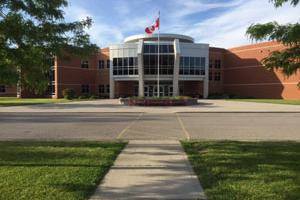Pathways and Course Option Information
|
What’s a Pathway? (and what does it have to do with success?) Throughout high school, students are introduced to the many opportunities available in each career sector. The Career Studies course helps Grade 10 students explore career interests, pathway choices, and required education and training. Career and volunteer fairs introduce Grade 11 students to potential employers. Cooperative education and youth apprenticeship programs are popular ways to gain experience and learn more about a possible career choice. Your parents, your teachers, your guidance counsellor and other people close to you can give you good advice. |
| Meet your guidance counsellor When you start high school, you will be assigned a guidance counsellor, who will help you plan your courses and career options. Along with the other staff in the Student Services Department, your guidance counsellor takes care of new student registrations, arranges course timetables, keeps track of student records, and a whole lot more. If you have a personal problem, your guidance counsellor can help you work it out, either on your own or with support from the school chaplain, an outside agency or a social worker assigned to your school. Guidance counsellors can help you get extra help if you’re having trouble with your schoolwork, or if you need help preparing for exams. At any time, you or your parents can contact your guidance counsellor to discuss concerns or make important decisions. |
| Deciding whether to go to college, work, university or apprenticeship upon completion of secondary school is no easy task. However, one thing is certain – good decisions are based on good planning. Choice of destination will be infl uenced by students’ interests and strengths, as well as course selection and achievement. Determining the appropriate level – applied, academic, essential; and later, college, workplace, or university – sets the stage for future career opportunities. In all cases, the need to plan ahead, research and investigate options is essential. |
Course Option PresentationWhere to go for more information Check out these websites: www.osca.ca College and University websites www.ontariocolleges.ca See the HT Course Calendar for course selections. |







